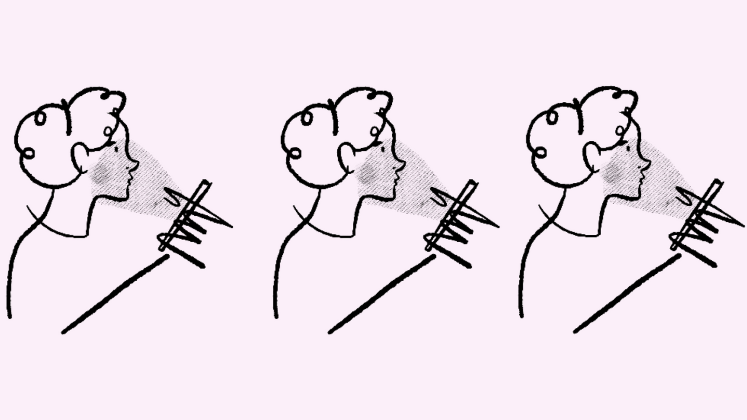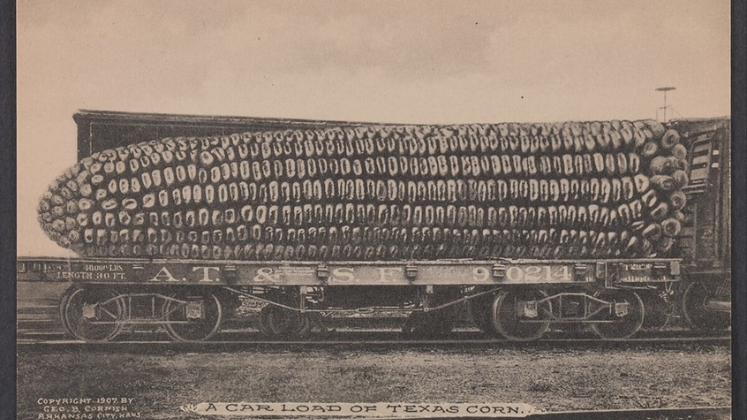Reflecting on his appearances on the GB News channel to discuss issues relating to climate policy, Bob Ward argues that research communicators should engage in spaces where opposing views hold a monopoly.
Over the past month I have been interviewed twice by Jacob Rees-Mogg on his television show on GB News, and have faced the same question from colleagues, friends and family: why bother?
Jacob Rees-Mogg , who is the Conservative MP for Northeast Somerset, started his programme on 26 March with an address to camera, described as a “Moggologue”, in which he railed against the claimed cost of policies to stop climate change by cutting annual emissions of greenhouse gases effectively to zero, or net zero.
He was drawing on a new report on ‘Decarbonising the Grid’ by Policy Exchange, which outlined three scenarios for achieving net zero emissions in the UK power sector. The scenario that he chose to focus on was achieving net zero emissions in the power sector by 2030, which is the Labour Party’s current policy goal.
According to the analysis, which was based on modelling by Aurora Energy Research, the total public and private investment in new renewable energy capacity required by 2035 to reach net zero in the power sector by 2030 would be £116 billion. The report also suggested that the additional investment in new renewables needed to reach net zero in the power sector by 2035, the Conservative Government’s policy target, would be £104.6 billion.
Bob Ward appearing on Jacob Rees-Mogg’s State Of The Nation Tuesday 26th March (starts 8:40).
While Rees-Mogg expressed his view that these sums were unaffordable, I was determined to remind him that he had been forced to spend at least £78 billion on public subsidies to protect consumers against the high price of fossil fuels. And that he himself whilst Secretary of State for Business, Energy and Industrial Strategy, introduced the Energy Price Guarantee and other measures to subsidise consumers who were facing high prices for gas and electricity as a result of the very big increase in the market price of natural gas following Russia’s invasion of Ukraine.
According to the Office for Budget Responsibility, the cost of these measures was £78.2 billion over the two years of 2022-23 and 2023-24, of which £39.9 billion was recouped through windfall taxes on energy companies. My colleagues and I had highlighted these figures in a paper, published in January 2024, on ‘Boosting growth and productivity in the United Kingdom through investments in the sustainable economy’.
I go on GB News to argue with people who have a particular viewpoint, a particular agenda, and I do not want their listeners hearing only one side of the argument.
We had a forthright exchange of views. I told him that the expenditure on decarbonising the power sector would be an investment that would generate new jobs and economic growth. Rather extraordinarily, he responded that “investment is a New Labour word for spending”. He also advocated fracking for gas around the UK and a return to coal for electricity generation.
On his programme on 11 April, I appeared alongside Stanley Johnson, a long-time environmentalist and father of the former Prime Minister Boris Johnson, and Tim Crosland, Director of the charity Plan B. In his ‘Moggologue, Rees-Mogg attacked a speech by Simon Stiell, the Executive Secretary of the United Nations Framework Convention on Climate Change. My aim was to again remind him of the high costs of fossil fuels and of the large £78 billion he spent while in Government on protecting consumers against the high price of fossil fuels.
I also challenged him about the farmers in his constituency who have been adversely affected by flooding from record rainfall. Rees-Mogg attempted to dispute the evidence that rainfall is increasing due to climate change, despite the clear results of the Met Office’s analysis.
Bob Ward appearing on Jacob Rees-Mogg’s State Of The Nation Thursday 11th April. (starts at 12:00).
During both interviews, I attempted to correct a number of what I consider to be false claims and there was much cross-talk. However, I think my appearance was worthwhile because it provided an opportunity for me to reach an audience that is often bombarded with misinformation and propaganda about climate change.
This audience is small. The latest monthly figures show it reached 3.24 million people, with about 5 per cent of the national share, and roughly one-third the size of the audience for the BBC News Channel and just under half of the Sky News audience. However, many Conservative MPs pay attention to the stories that dominate GB News, and, of course, appear on its as presenters and interviewees.
The use of MPs, such as Rees-Mogg, as presenters has led to multiple breaches of impartiality rules under the Broadcasting Code, according to the regulator Ofcom. Again, this raises questions about the value of appearing on GB News.
This was put to me by John Nicolson MP in January 2023, while giving oral evidence to an inquiry on ‘Misinformation and trusted voices’ by the Sub-committee on Online Harms and Disinformation of the House of Commons Select Committee on Digital, Culture, Media and Sport:
“Is it wrong not to go on the channel? You must think it is right, presumably, if you go on the channel to try to tackle some of the disinformation. Is there not a danger that the counterargument is, of course, that you give it credibility by appearing?”
In my response, I pointed out: “I go on GB News to argue with people who have a particular viewpoint, a particular agenda, and I do not want their listeners hearing only one side of the argument”.
I also stated: “It means addressing their concerns and dealing head-on with the concerns that they have. That is what is required, because if you ignore that constituency, misinformation and disinformation take hold. Those people end up voting in ways that are misinformed. I think that we have seen plenty of examples of what happens when you do not do that.”
The Sub-Committee has now published its final report. Its main conclusion is:
“There is no one single trusted voice: different communities or demographics may turn to different ones. That that is as it should be, but the more the media seeks to understand and reflect the diversity of the country, the more it can provide the trusted voices that are vital in providing accurate information and tackling misinformation where it arises.”
The content generated on this blog is for information purposes only. This Article gives the views and opinions of the authors and does not reflect the views and opinions of the Impact of Social Science blog (the blog), nor of the London School of Economics and Political Science. Please review our comments policy if you have any concerns on posting a comment below.
Image Credit: Screenshot of Bob Ward and Sir Jacob Rees-Mogg on GBNews, 17/04/2024 at 15.46.19.







